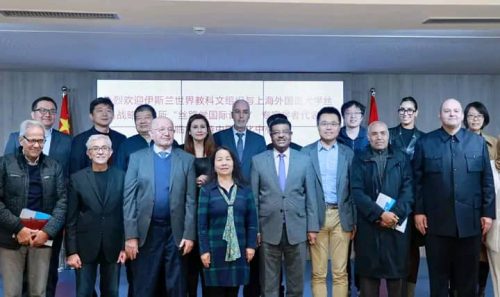Translation : A vital Cultural Exchange Between Nations

Sudan Events
Following their participation in the International Silk Road Conference, which was organized by ISESCO on Monday (December 4, 2023) at its headquarters in Rabat, in partnership with the Institute for Strategic Studies of the Silk Road at Shanghai University in China, a group of experts held a discussion session the day after the conference, at the headquarters of the Chinese Cultural Center in the capital. Moroccan RabatI addressed:
-Analytical insights into the concept of the Silk Road
-Translation is a vital means of cultural exchange between peoples
-Economic, cultural and political dimensions of relations between the Islamic world and China
-Emphasizing that Chinese Muslims are an integral part of the interaction between the Islamic world and China
The session was Participated by Ambassador Khalid Fath al-Rahman, Director of the ISESCO Center for Civilizational Dialogue, and Professor Ma Lirong , Dean of the Institute for Strategic Studies of the Silk Road at Shanghai University.
Professor Ma Lirong, Dean of Institute of Silk Road Strategy Studies, Shanghai International Studies University elaborated on China’s effort to promote academic exchange and enhance cultural cooperation, which are best highlighted when studying the history of the silk road.
Li Changlin, Ambassador Extraordinary and Plenipotentiary of Republic of China to the Kingdom of Morocco, stressed that the Conference held at ICESCO headquarters is an opportunity to promote the Belt and Road Initiative and enhance communication and cooperation between countries to contribute to economic development at the Silk Road International Conference.
It is worth noting that ISESCO Center for Civilizational Dialogue is working tirelessly to implement its programs and missions in order to promote the major civilizational concepts. In fact, the civilizational Dialogue center aim to promote and facilitate the peaceful resolution of conflicts, reconciliate tensions between cultures, promote and facilitate dialogue, contribute to academic research and enrich the wider debate around peace in the world.
The Center also worked on promoting the network of academic chairs, issued a number of publications, organized forums, signed MoU’s and consolidated its relations with a number of academic centers active in civilizational and humanitarian fields.



